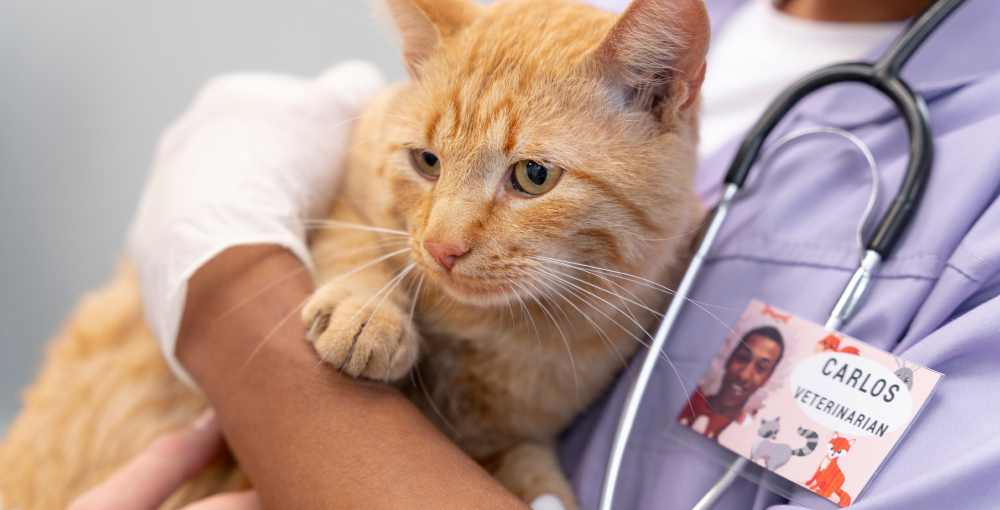Remember that laughter, crying, comforting cuddles, and epic wrestling matches with dangling yarn? You and your senior cat have weathered life’s ups and downs side by side. Even the frantic yowls at 3 am (because of tuna, obviously)? Yeah, your senior cat has seen you at your best and, ahem, most interesting. They cherish every moment with you, soaking up every ounce of love you offer. So, why not give back in the most meaningful way possible? These senior cat health tips will help your feline friend live their golden years to the fullest!
When Does a Cat Become a Senior?
Alright, let’s talk about when our furry feline friends officially become seniors! Cats are like fine wine; they get better with age. But just like us, they also reach a point where they graduate from being adult cats to being considered seniors.
Typically, this transition happens around the age of 12 to 14. Yep, that’s right. When your cat hits the double digits, it’s like they’re entering their golden years. They may start to slow down a bit, preferring cozy naps in the sun over wild chases with feather toys.
But wait, there’s more! Some cats defy the odds and keep on going strong even past the age of 15. These wise old kitties are what we call geriatric cats. They might need a little extra TLC and attention, kind of like our grandparents. Extra attention, affection, patience, care, and special treatment!
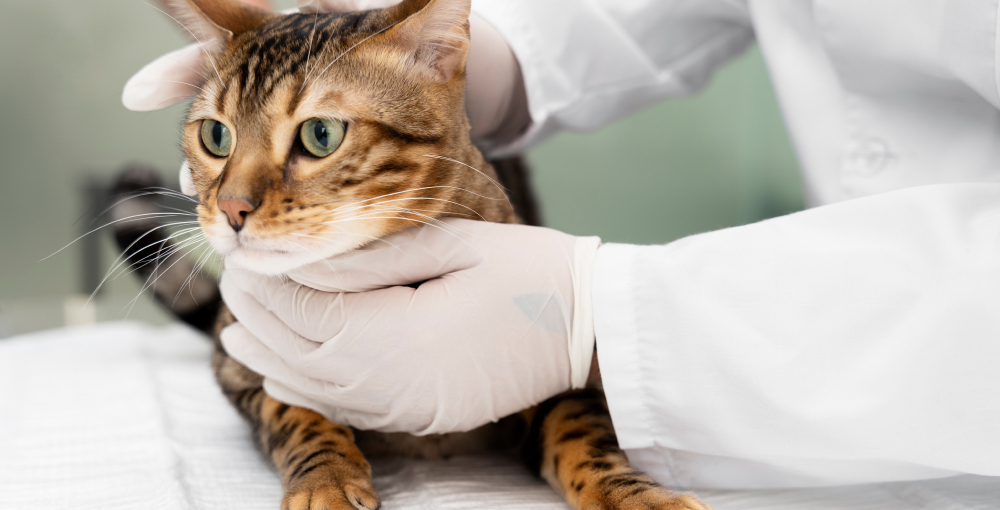
Preventative Care to Keep Your Senior Cat Healthy
Just like us, our senior kitties need a little extra TLC to stay feeling their best. Here’s what you can do to keep them happy and healthy for years to come:
- Veterinary Checkups: Regular vet checkups are super important for senior cats. It’s like a spa day for them (minus the cucumber slices on their eyes, maybe)! Aim for at least two vet checkups per year. These visits allow early detection of health issues and ensure timely intervention.
During checkups, the vet assesses your cat’s overall health, checks for signs of diseases, and discusses any concerns you might have. Keep vaccinations up-to-date and follow your vet’s recommendations for parasite prevention.
- Nutrition: As your cat ages, their nutritional needs change. Just like we wouldn’t expect our grandma to eat the same things we do, senior cats need a special diet formulated for their changing bodies. This might mean food that’s easier to chew, has more nutrients they need now, or helps them maintain a healthy weight.
As cats age, their nutritional needs change. Consider switching to a high-quality senior cat food formulated to support aging bodies. Look for diets with easily digestible proteins, joint support, and controlled calorie content.
You can try Purina’s chicken dry food or chicken gravy wet food. If your cat has sensitive skin and stomach, then try their salmon and tuna dry cat food.
Regularly weigh your cat to track any weight changes. ust like with humans, extra pounds can put a strain on their joints and make them more susceptible to certain health problems. Consult your vet to determine the appropriate portion size based on your cat’s weight and activity level.
And don’t forget about hydration! Making sure your cat drinks enough water is crucial. Wet food, cat fountains, and placing multiple water bowls are great ways to keep them hydrated and happy.
- Dental Care: Dental health is just as important for senior cats as it is for us. Dental problems can be painful and lead to other health issues. Regular vet cleanings are ideal, but if that’s not possible, gentle at-home brushing can help maintain good oral hygiene.
Brush your cat’s teeth regularly using a cat-specific toothbrush and toothpaste. Dental treats or toys can help reduce plaque buildup.
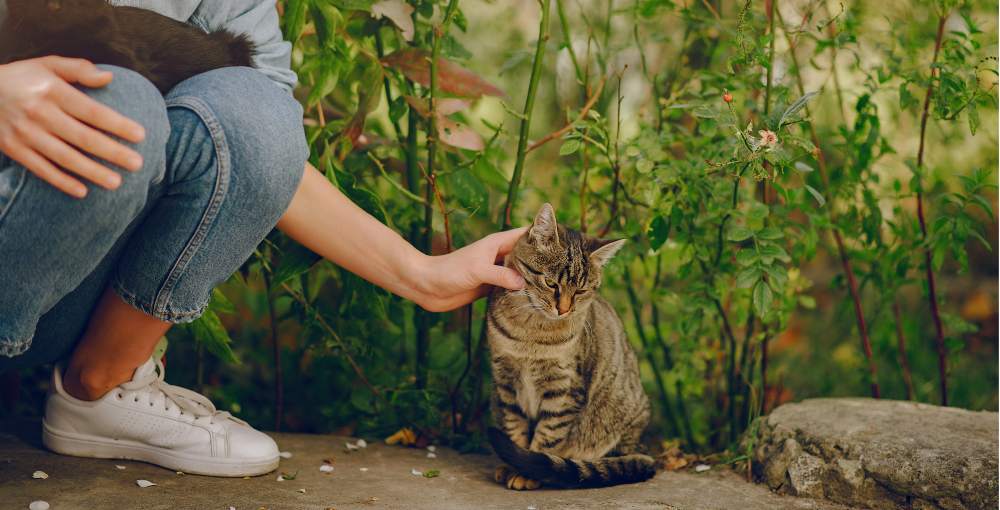
Environmental Enrichment for Your Senior Cat
As your feline friend ages, their bodies might not be quite as spry as they used to be. With a few adjustments around the house, you can create a comfortable and stimulating environment for them.
- Accessibility: Just like us, senior cats might need a little help getting around. Consider adding ramps or steps to help them reach their favorite spots, like the bed or the windowsill. Raised food bowls can also be a game-changer for cats with mobility issues. And don’t forget about the litter box situation—make sure there are multiple boxes scattered around the house, easily accessible for your senior cat’s convenience.
- Help with Grooming: As cats age, they might need a little extra help in the grooming department. Gentle brushing not only keeps their fur looking fabulous but also helps prevent painful matting and keeps their skin healthy and happy.
- Comfort and Safety: Create cozy nooks with plenty of soft bedding where your senior cat can curl up for a nap. Make sure these spots are in warm, draft-free areas to keep your cat comfortable. And since senior cats can be more sensitive to changes in their environment, try to keep things calm and predictable to minimize stress.
- Mental Stimulation: Just because they’re getting older doesn’t mean they’re not still playful! Keep your senior cat’s mind sharp by providing toys, puzzles, and perches for them to explore. Adapt playtime to their abilities—think feathered wands instead of fast-paced chasing games.
Some senior cats still enjoy catnip, which can provide mental stimulation. Provide cozy hideouts (such as covered beds or cardboard boxes) where they can feel secure. Keeping their brains engaged is just as important as keeping their bodies healthy!
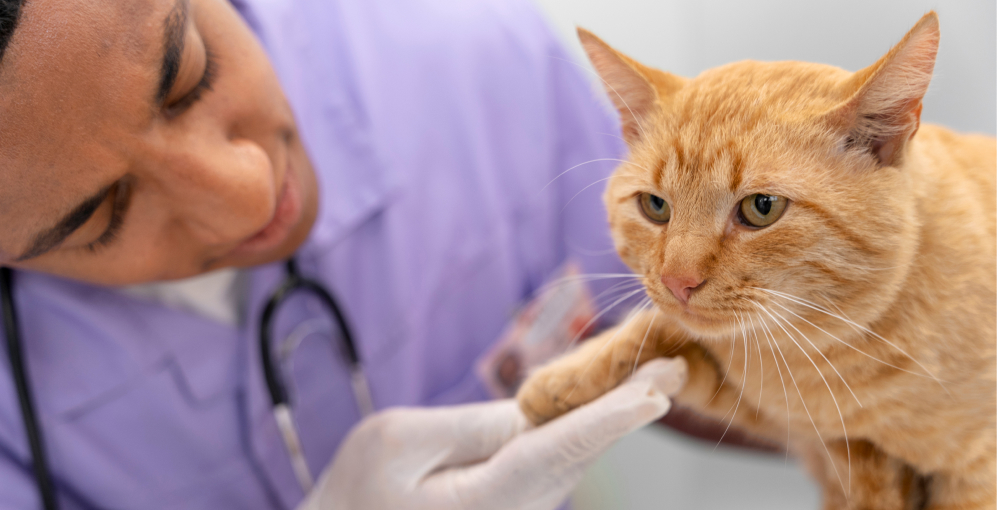
Monitoring Your Senior Cat
Keeping a close eye on your senior cat’s health is super important to catch any issues early on. Here’s how you can monitor your wise old kitty:
- Signs of Illness: Keep an eye out for any changes in your senior cat’s behavior. If they suddenly
- lose interest in their food,
- have trouble using the litter box,
- frequent trips to the litter,
- difficulty urinating or signs of discomfort
- seem unusually tired or lethargic
it could be a sign that something’s up. Trust your instincts—if anything seems off, don’t hesitate to reach out to your vet for advice.
- Vision and Hearing: It’s natural for vision and hearing to decline with age in senior cats. You might notice your cat bumping into things more often, seeming startled by sudden noises, or not responding as readily to your voice. While these changes can’t be reversed, being aware of them can help you adjust your interactions with your cat. Therefore, provide well-lit areas and avoid rearranging furniture to minimize stress. Also, create a calm environment and avoid sudden loud noises.
Pet Insurance for Senior Cat
Veterinary care can be expensive, and senior cats may require more frequent vet visits, diagnostics, medications, or unexpected treatments. While pet insurance might not be right for everyone, it’s worth considering for your senior feline friend.
Some senior cats may already have preexisting conditions. While not all pet insurance policies cover pre existing conditions, it’s essential to explore options that provide coverage despite existing health issues.
It can provide peace of mind knowing you’ll be financially prepared for any potential health issues that may arise. Talk to your vet or a pet insurance provider to see if it’s a good fit for you and your cat.
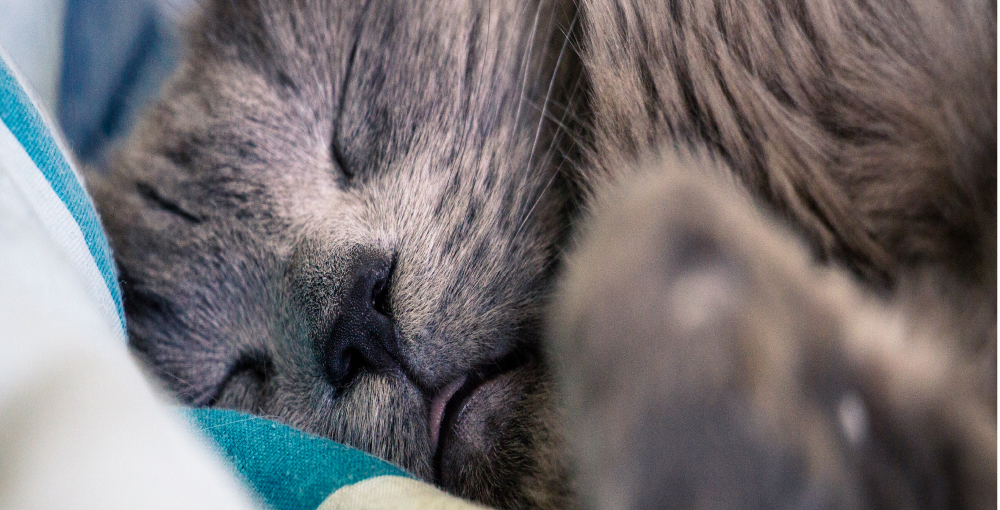
How to Know If Your Cat Is Dying
As much as we cherish our feline companions, there comes a time when we may face the heartbreaking reality of their passing. While there’s no single definitive sign that a cat is dying of old age, there are certain changes in behavior and physical health that can serve as indicators. Here’s what you should know:
Recognizing Signs of Decline:
These are some common symptoms associated with old age in cats that might progress towards the end of their life:
- Loss of appetite and weight loss
- Changes in litter box habits
- Noticeable decline in activity level
- Vocalization, reluctance to be touched, or difficulty grooming
- Changes in appearance like sunken eyes, a dull coat, or unkempt fur
- Loss of consciousness or become increasingly lethargic
- Labored or shallow breathing
- Crying, excessive shaking
- Sitting or lying posture is an unusual position
- Showing sign of disorientation or confusion
- Don’t wanna go outside, or refuse to come in from the garden
- Loss of body temperature
- Loss of bowel and bladder control
Making the Hardest Decision
No one wants to say goodbye to their beloved pet. But sometimes, the kindest choice is to allow your cat to pass peacefully when their quality of life has significantly declined.
It’s important to remember that every cat is different, and not all cats will exhibit the same symptoms. If you’re unsure whether your cat is nearing the end of their life, or if you’re struggling with the decision of when to euthanize your cat, consider consulting with your veterinarian.
They can provide guidance and support during this difficult time. Remember, prioritizing your cat’s comfort and well-being is paramount.
Conclusion
By following these tips and showering your senior cat with love and attention, you can create a comfortable and enriching environment that allows them to thrive in their golden years. Remember, the human-animal bond is a powerful thing, and the rewards of caring for a senior cat are immeasurable. Enjoy this special time in your feline friend’s life, and cherish the memories you create together.

